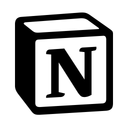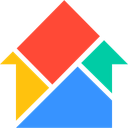Notion vs Hygger (2026 Comparison)
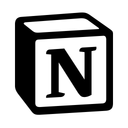
Notion offers a versatile platform combining note-taking, task management, and collaboration. Its customizable templates and strong collaboration tools make it ideal for teams seeking a personalized workflow.
- Highly customizable templates.
- Versatile functionality.
- Strong collaboration tools.
- Steep learning curve.
- Limited time tracking features.
Free plan?
YesStarting price
$10 per month per user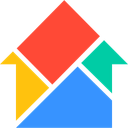
Hygger excels in agile project management with robust Kanban boards and effective time tracking. Its strong roadmap features make it a top choice for teams focused on project planning.
- Robust Kanban boards.
- Effective time tracking.
- Strong roadmap features.
- Less versatile templates.
- Limited database management.
Free plan?
YesStarting price
$7 per month per userWhat is Notion?
Notion is a versatile tool that combines note-taking, task management, and collaboration features into one platform. It helps users organize their work and personal life by providing a customizable workspace where you can create databases, wikis, and project boards. Whether you're a student managing your coursework or a professional coordinating team projects, Notion offers the flexibility to tailor your workspace to your specific needs, making it an invaluable tool for boosting productivity and organization.
What is Hygger?
Hygger is a project management software designed to help teams prioritize tasks and manage projects efficiently. It offers features like Kanban boards, roadmaps, and time tracking, which are essential for agile teams. Hygger helps its customers by providing a clear overview of project progress, enabling better decision-making and resource allocation. Whether you're a startup or a large enterprise, Hygger's tools can streamline your workflow and enhance team collaboration, making it easier to achieve your project goals.
Pros and Cons of Notion vs Hygger
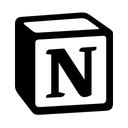
Pros & Cons of Notion
- Notion offers a wide range of customizable templates that allow users to tailor their workspace to fit their specific needs. This flexibility makes it an ideal choice for individuals and teams looking to create a personalized workflow.
- Notion combines note-taking, task management, and collaboration features into one platform, making it a versatile tool for various use cases. Its ability to handle multiple functions sets it apart from other tools.
- Notion's collaboration tools facilitate seamless teamwork, allowing users to share documents, comment, and collaborate in real-time. This makes it an excellent choice for teams looking to enhance their collaborative efforts.
- Notion's extensive features and customization options can be overwhelming for new users, resulting in a steep learning curve. It may take some time to fully understand and utilize all of its capabilities.
- While Notion offers basic time tracking features, they are not as comprehensive as those found in other tools. Users who require detailed time tracking may need to look elsewhere.
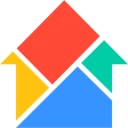
Pros & Cons of Hygger
- Hygger's Kanban boards are designed specifically for agile teams, providing a robust and effective way to manage tasks and projects. This makes it an ideal choice for teams focused on agile project management.
- Hygger offers comprehensive time tracking features that provide detailed insights into how time is spent on projects. This is particularly useful for teams looking to optimize their workflow and improve efficiency.
- Hygger's roadmap feature provides a clear visual representation of project timelines and milestones, making it an excellent tool for planning and tracking project progress.
- Hygger's templates are more focused on project management, offering less versatility compared to other tools. Users looking for a wider range of template options may find this limiting.
- Hygger offers basic database management features, but they are not as comprehensive as those found in other tools. Users who require advanced database capabilities may need to look elsewhere.
Notion vs Hygger: At A Glance
Value to Price
Notion offers a comprehensive suite of features at a competitive price, making it a great value for individuals and teams looking for an all-in-one solution. Its flexibility and customization options justify its slightly higher price point compared to Hygger. Hygger, while slightly more affordable, offers robust project management features that are ideal for agile teams. If you're looking for a tool that balances cost with extensive features, Notion might be the better choice.
Ease of Use
Notion's interface is intuitive and user-friendly, allowing users to quickly adapt and start organizing their workspaces. Its drag-and-drop functionality and customizable templates make it easy for beginners to get started. Hygger, while also user-friendly, may require a bit more time to master due to its focus on agile project management. If you prioritize ease of use and a gentle learning curve, Notion is likely the better option.
Functionality
Notion excels in functionality, offering a wide range of features from note-taking to database management, making it a versatile tool for various use cases. Hygger, on the other hand, focuses on project management with features like Kanban boards and roadmaps. If you need a tool that can handle multiple functions beyond project management, Notion is the superior choice.
Scalability
Both Notion and Hygger offer scalable solutions, but Notion's flexibility in creating custom workflows and databases makes it more adaptable to growing teams and projects. Hygger's scalability is more focused on project management, making it ideal for teams that need to scale their agile processes. If your team is expanding and requires a tool that can grow with you, Notion is a strong contender.
Integrations
Notion offers a wide range of integrations with popular tools like Slack, Google Drive, and Trello, enhancing its functionality and making it a central hub for your workflow. Hygger also provides integrations, but its focus is more on project management tools. If you need a tool that can seamlessly integrate with various applications, Notion is the better choice.
Customer Support
Notion provides comprehensive customer support, including a detailed help center, community forums, and responsive email support. Hygger also offers support, but users have noted that response times can be slower. If reliable and prompt customer support is a priority for you, Notion is likely the better option.
Security
Notion takes security seriously, offering features like two-factor authentication and data encryption to protect user information. Hygger also provides security measures, but Notion's reputation for robust security practices gives it an edge. If security is a top concern for your organization, Notion is the safer choice.
Overall Rating
Overall, Notion scores higher due to its versatility, ease of use, and comprehensive feature set. Hygger is a strong contender for teams focused on agile project management, but Notion's all-in-one approach makes it a more attractive option for a wider range of users. If you're looking for a tool that can do it all, Notion is the clear winner.
Notion vs Hygger: A Detailed Breakdown of Key Features
Customizable Templates
Notion offers a wide array of customizable templates that allow you to tailor your workspace to fit your specific needs. Whether you're managing a project or organizing personal tasks, Notion's templates provide a flexible starting point. Hygger also offers templates, but they are more focused on project management. If you value the ability to customize and adapt templates to various use cases, Notion is the better choice.
Kanban Boards
Both Notion and Hygger offer Kanban boards, but Hygger's implementation is more robust, catering specifically to agile teams. Notion's Kanban boards are versatile and can be used for a variety of purposes, but if your primary focus is agile project management, Hygger's Kanban boards might be more suitable.
Time Tracking
Hygger excels in time tracking, providing detailed insights into how time is spent on projects. Notion offers basic time tracking features, but they are not as comprehensive as Hygger's. If time tracking is a critical component of your workflow, Hygger is the better option.
Collaboration Tools
Notion's collaboration tools are designed to facilitate seamless teamwork, allowing users to share documents, comment, and collaborate in real-time. Hygger also offers collaboration features, but they are more focused on project management. If you need a tool that enhances team collaboration across various tasks, Notion is the superior choice.
Roadmaps
Hygger's roadmap feature is a standout, providing a clear visual representation of project timelines and milestones. Notion offers roadmaps as well, but they are more flexible and can be adapted to different use cases. If you need a tool specifically for project roadmaps, Hygger is the better choice.
Database Management
Notion's database management capabilities are extensive, allowing users to create and manage complex databases with ease. Hygger offers basic database features, but they are not as comprehensive as Notion's. If database management is a key requirement for you, Notion is the clear winner.
Pricing Comparison of Notion and Hygger
To assist you in making an informed choice, we’ve outlined the pricing plans and essential features of Notion and Hygger. This comparison will highlight the best option for managing your projects and tasks.
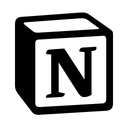
Notion Pricing Plans
- Collaborate with friends, family & colleagues on your pages.
- Basic page analytics to track interactions.
- Restore your page to a previous version with 7-day history.
- Invite up to 10 guests to collaborate.
- Unlimited file uploads for seamless data management.
- 30-day page history for better version control.
- Invite up to 100 guests for broader collaboration.
- Custom websites with Google Analytics integration.
- Private teamspaces for sensitive information.
- Bulk PDF export for legal or compliance backups.
- Advanced page analytics for detailed insights.
- Invite up to 250 guests for extensive collaboration.
- Advanced security & controls for enhanced protection.
- Audit log for tracking security-related activities.
- Customer success manager for expert guidance.
- Unlimited page history for comprehensive version tracking.
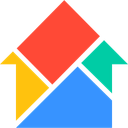
Hygger Pricing Plans
- Unlimited projects and boards to manage tasks.
- 100 MB storage for storing essential files.
- No credit card required for signing up.
- No long-term commitments, cancel anytime.
- Unlimited integrations with other tools and apps.
- Unlimited tasks to manage without restrictions.
- Monthly and annual billing options available.
- 20% discount on annual subscription.
- Branded workspace for a professional look.
- SAML SSO and Google Apps SSO for secure access.
- Unlimited API access for custom integrations.
- Premium support for priority assistance.
Our Rating Methodology
We thoroughly test each project management tool, evaluating key features like ease of use, functionality, and scalability. We also analyze user reviews to ensure our recommendations fit your needs. Each of the seven evaluation factors is weighted by importance to provide an accurate final rating, helping you avoid poor-quality tools and make informed decisions.
Notion or Hygger: Which One Matches Your Business Needs?
Choose Notion If You Need ...
- Versatile functionality for diverse needs
If you need a tool that can handle multiple functions beyond project management, Notion is the superior choice. Its versatility makes it ideal for individuals and teams looking to manage various tasks and projects in one platform.
- Strong collaboration tools
If enhancing team collaboration is a priority, Notion's collaboration tools are designed to facilitate seamless teamwork. Its real-time collaboration features make it an excellent choice for teams looking to improve their collaborative efforts.
Choose Hygger If You Need ...
- Robust Kanban boards for agile teams
If your primary focus is agile project management, Hygger's robust Kanban boards are specifically designed for agile teams. This makes it an ideal choice for teams looking to manage tasks and projects effectively.
- Effective time tracking
If time tracking is a critical component of your workflow, Hygger offers comprehensive time tracking features that provide detailed insights into how time is spent on projects. This is particularly useful for teams looking to optimize their workflow.
Frequently Asked Questions
 Which tool is better for agile project management?
Which tool is better for agile project management?
 Which tool offers more customization options?
Which tool offers more customization options?
 Which tool is more user-friendly?
Which tool is more user-friendly?
 Which tool provides better customer support?
Which tool provides better customer support?
 Which tool is more secure?
Which tool is more secure?
 Which tool is better for database management?
Which tool is better for database management?

Anastasia Belyh
Anastasia Belyh is a senior tech writer with over 15 years of experience in marketing, sales, and business software. Having worked in investment banking, management consulting, and founded multiple companies, her in-depth knowledge and hands-on expertise make her software reviews authoritative, trustworthy, and highly practical for business decision-makers.

